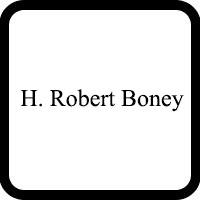Leesburg RICO Act Lawyer, New Jersey
Sponsored Law Firm
-
 x
x

Click For More Info:
-
The Law Offices of Richard L. Cooper, P.A.
848 Brickell Avenue Suite 800 Miami, FL 33131» view mapDWI/DUI, Drug Trafficking, Felony Nationally Ranked Top 40 Under 40
With Richard L. Cooper you can expect a trusted confidant who will work diligently to fully understand your case and determine a road map to help you regain control of your life.
800-756-2781
Not enough matches for Leesburg RICO Act lawyer.
Below are all Leesburg Criminal lawyers.
H. Robert Boney
✓ VERIFIEDCriminal, Divorce & Family Law
H. Robert Boney has been practicing criminal defense and family law for 41 years, in additional to some general litigation.
Yaron Helmer
Criminal, Divorce & Family Law, Accident & Injury, Immigration
Status: In Good Standing Licensed: 46 Years
Beverly McCall
Divorce & Family Law, Criminal, Bankruptcy & Debt, Estate
Status: In Good Standing Licensed: 40 Years
FREE CONSULTATION
CONTACTCharles W Sandman III
Accident & Injury, Criminal, Traffic, Health Care, Car Accident
Status: In Good Standing
Yaron Helmer
Criminal, Divorce & Family Law, Accident & Injury, Immigration
Status: In Good Standing Licensed: 46 Years
FREE CONSULTATION
CONTACTSeymour Wasserstrum
DUI-DWI, Criminal, Contract, Bankruptcy
Status: In Good Standing Licensed: 51 Years
Charles I. Coant
Workers' Compensation, DUI-DWI, Criminal, Accident & Injury
Status: In Good Standing Licensed: 36 Years

 Richard L. Cooper Miami, FL
Richard L. Cooper Miami, FL AboutMiami Attorney at Law
AboutMiami Attorney at Law ServicesCriminal Defense
ServicesCriminal Defense

